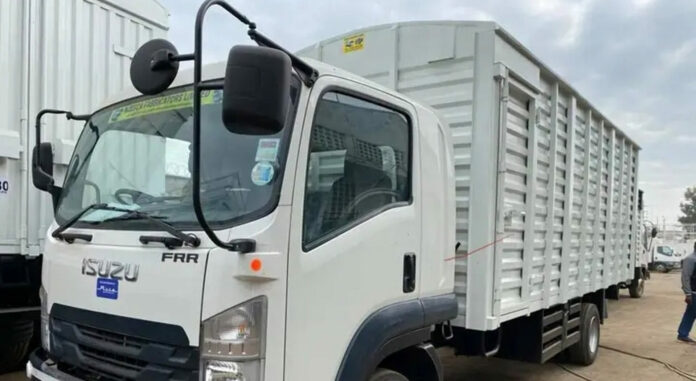I earn a net salary of Sh. 70,000. My budget is as follows: Rent: Sh. 17,000, Mobile internet/airtime: Sh. 2,500, Electricity: Sh. 1,000, Shopping: Sh. 7,000, Groceries: Sh. 7,000, Transport: Sh. 7,000, Parents: Sh. 8,000, Savings: Sh. 15,000, Balance: Miscellaneous.
I would like to venture into the transportation business and have a deal that has been proposed to me and I wonder if it is ideal. The deal is a sukuma deni type of deal for an Isuzu FRR Slay Queen.
I am to pay the owner Sh. 1 million cash, then take over the debt and the vehicle. I will be paying Sh. 116,000 monthly and the loan balance is Sh. 3.9 million. I have saved Sh. 435,000 in Sacco. I would like to take a Sh1 million loan to pay off the owner.
I plan to pay off the sukuma deni from proceeds of the lorry and project to make around Sh. 150,000 per month. I would like to also pay the Sh. 1 million Sacco loan from my budget but don’t know how to realign my budget. Is this a deal I should take? Please advise.
Expert’s Take
The secret to financial security and wealth accumulation is risk and debt management, which entails being adequately medically insured, paying off short term loans and living within your means by establishing a budget and adhering to it.
From your budget, you have miscellaneous expenses amounting to Sh. 5,500 and have kept rent to 24% of your net pay. Your savings of Sh. 15,000 represent 21% of your net income. As the average savings rate hardly beats 10% of net incomes, a modest lifestyle and budget is necessary for sustainable wealth building through increased savings and investments.
The rest of your expenses are in line with everyday expenses for a small family. It is also important to take care of other basics that form part of personal finance eg. Education planning, medical insurance, and home ownership.
Before dipping your feet in a capital intensive venture like lorry transport, having a scholar’s insurance plan, adequate medical cover and a plan towards owning the roof above your head are highly recommended.
Your transport budget seems to be on the higher side. Daily fares exceeding Sh. 300 are way too high. Your job could be involving a lot of local travel, or you frequently use “boda boda” short distances, or living far away from the workplace. You could consider moving closer to your work station in order to reduce that expense.
Your intention to venture into the lorry business should be well thought out. What do you know about the business? Do you have reliable insider information to navigate the intricacies of the transport sector? Are the income estimates you’ve mentioned net of expenses? Consider the costs of maintaining the lorry, fuel, driver wages, inspection and insurance, and lengthy wait-times, etc.
Court allows Kisumu man to delete his name from child’s birth certificate
It is advisable to find more information from an experienced owner and driver to understand the risks and opportunities of the business. People give enticing information while concealing stubborn facts especially when they seek to exit a venture.
Remember you are getting into a lot of debt – Sh. 1 million loan that will cost you an additional Sh. 400,000 interests, and monthly repayments of Sh. 23,000 if servicing in 60 months – and over a million shillings in interests for the loan balance of Sh. 3.9 million. The monthly repayments of Sh. 23,000 may be sourced by reducing your SACCO savings to Sh. 5,000. This will avail Sh. 10,000.
Should you wish to pay for 60 months, the balance of Sh. 13,000 can only be met by cutting your living costs and your parents’ support money. For example, reducing parents’ support by Sh. 3,000 and groceries, shopping, transport, and miscellaneous expenses by Sh. 10,000. You will definitely feel the pinch of the new adjustments. As such, you must do your homework. Do not only focus on the rosy side.
What would happen, for example, if the lorry broke down and needed urgent repairs? You ought to have an emergency fund. This means you should save part of the lorry income in an account to meet the lorry’s maintenance costs.
With a monthly repayment of Sh. 116,000, you will be left with Sh. 34,000 from the expected income of Sh. 150,000. Keeping part of this in a money market fund where it is not only safe, but also earns interests that are credited monthly will help you take care of unforeseen expenses.
Finally, think through this proposition as it is capital intensive and can easily put your finances in disarray. Apart from your Sh. 435,000 SACCO savings, you do not have other assets or cash to come to your rescue should the venture fail to go according to plan.
Build both fixed and liquid assets without exposing yourself to too much debt, especially by venturing into a dynamic sector like lorry transport. Learn the ropes of the trade while building adequate cash reserves as a fallback.
A version of this financial question and answer was previously published in the Saturday Magazine. The Saturday Magazine is a publication of the Nation Media Group. The expert’s take was responded to by Mr. Benjamin Cheruiyot who is the Engagement Lead at Abojani Investments, a personal finance and investments advisory firm.








